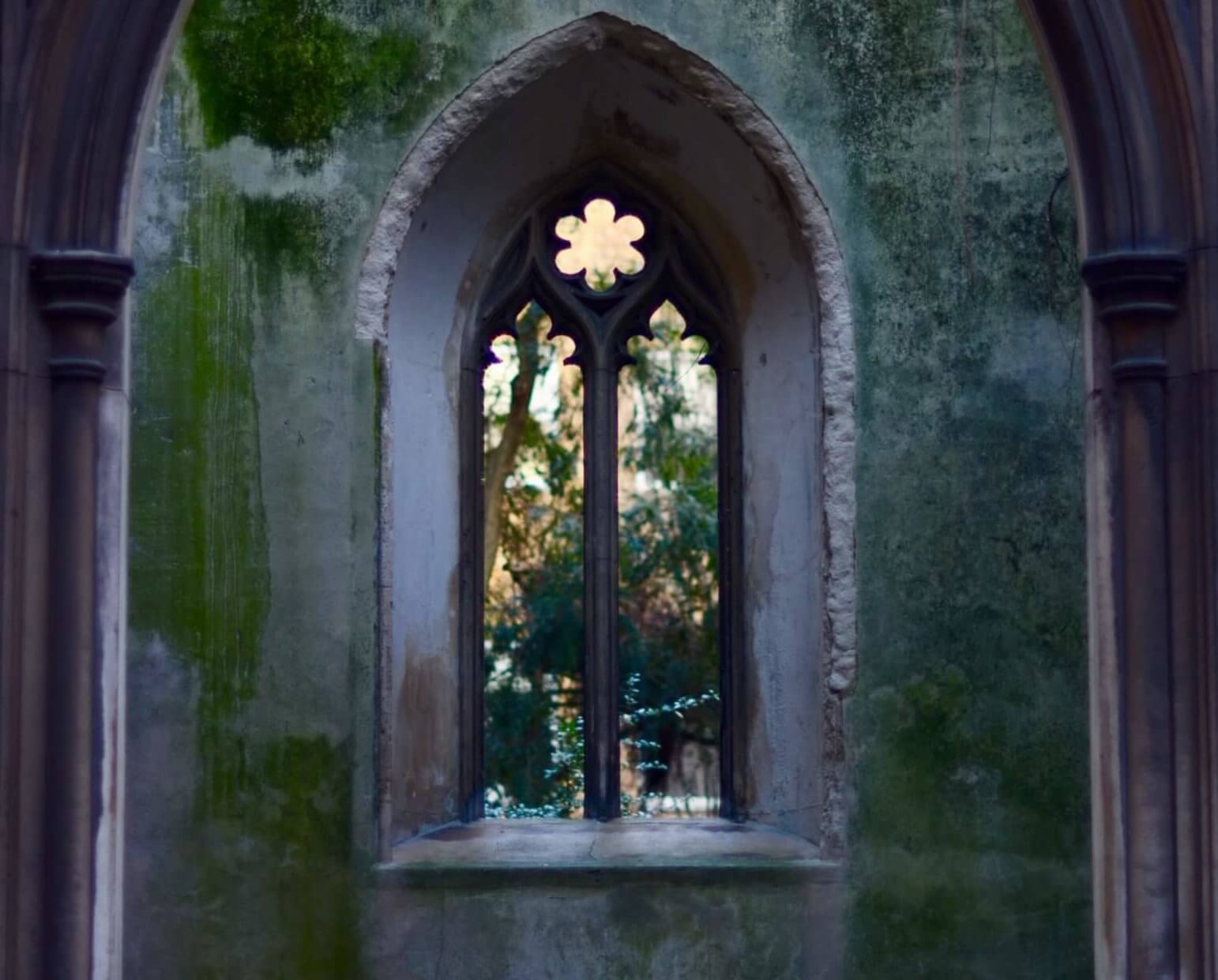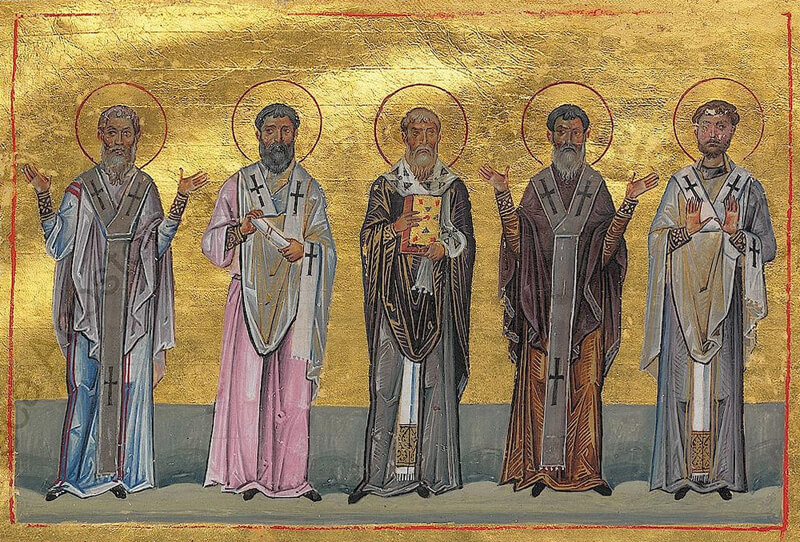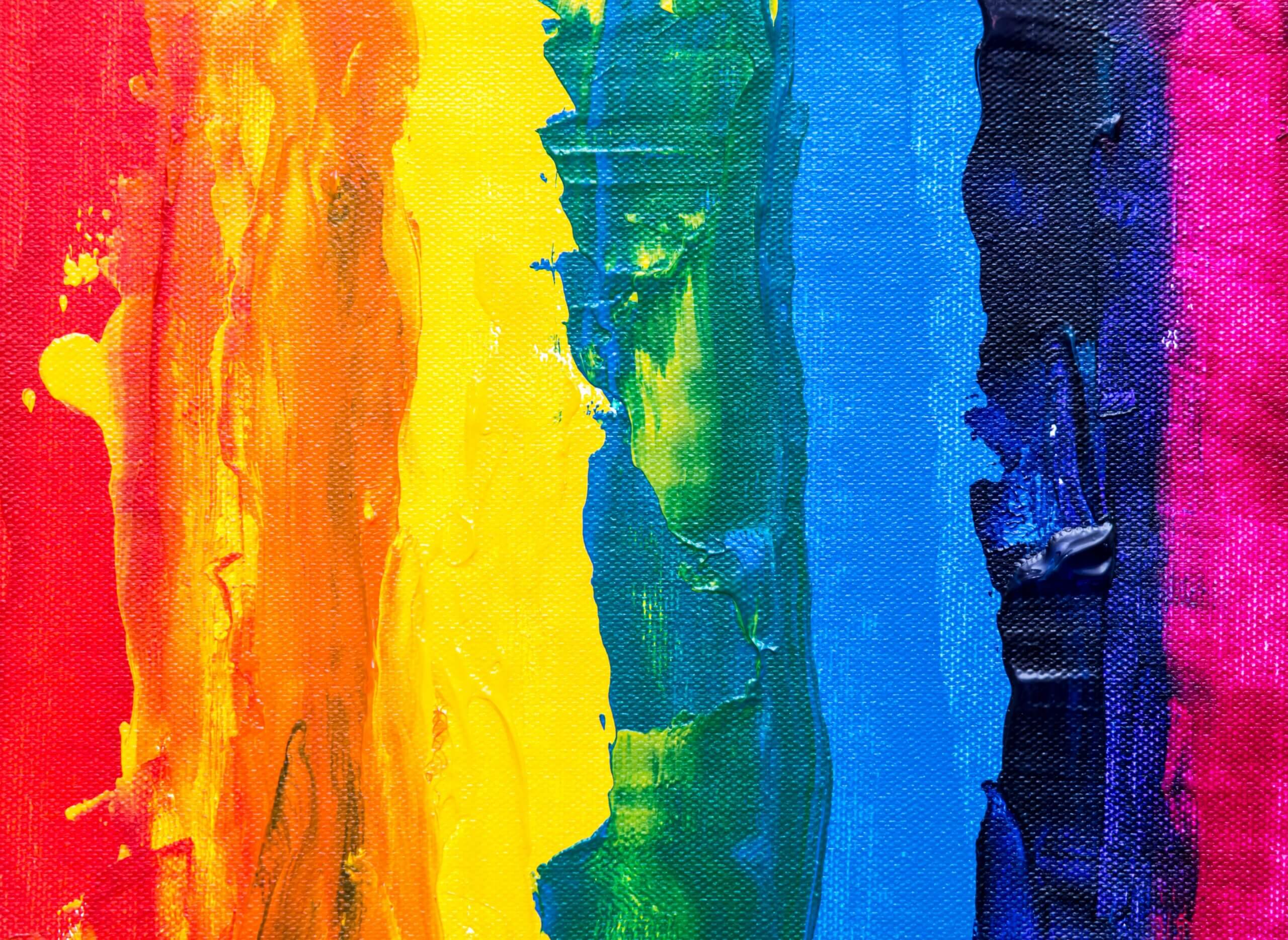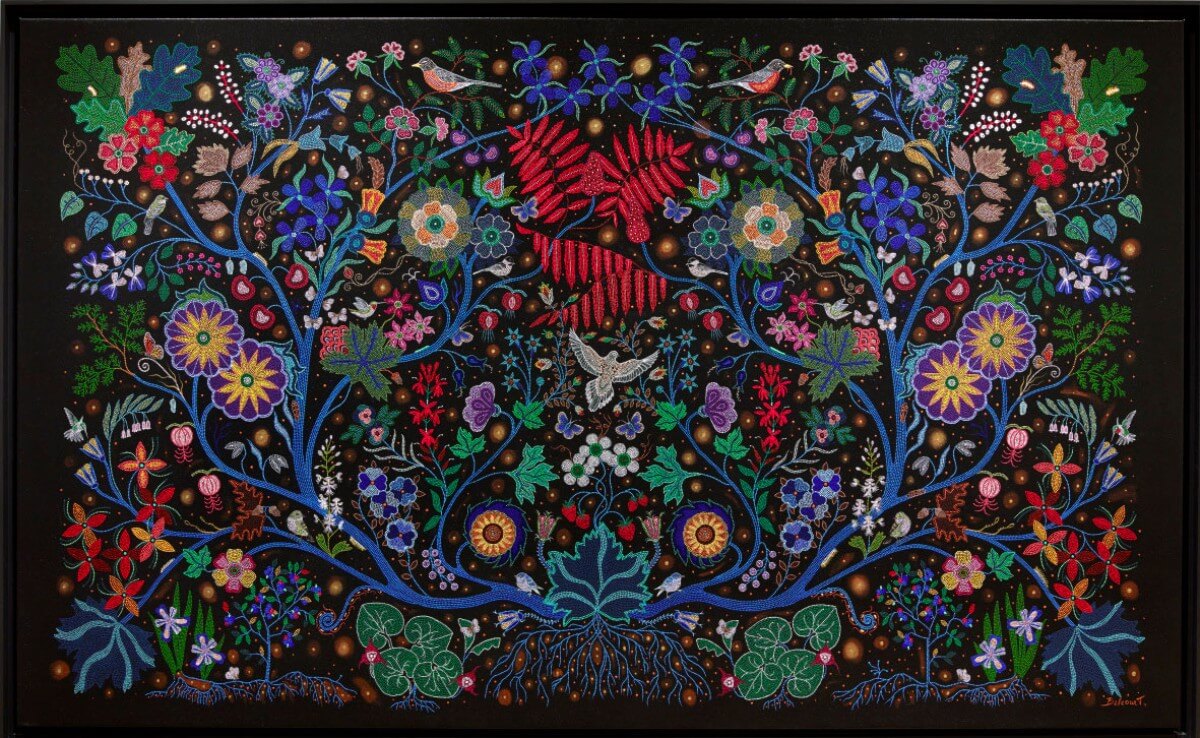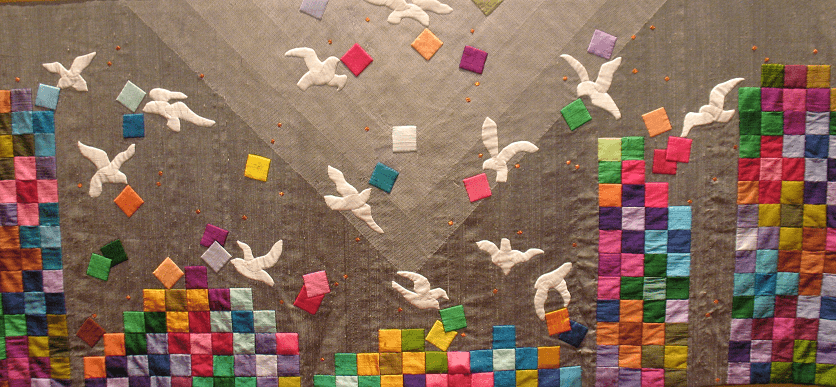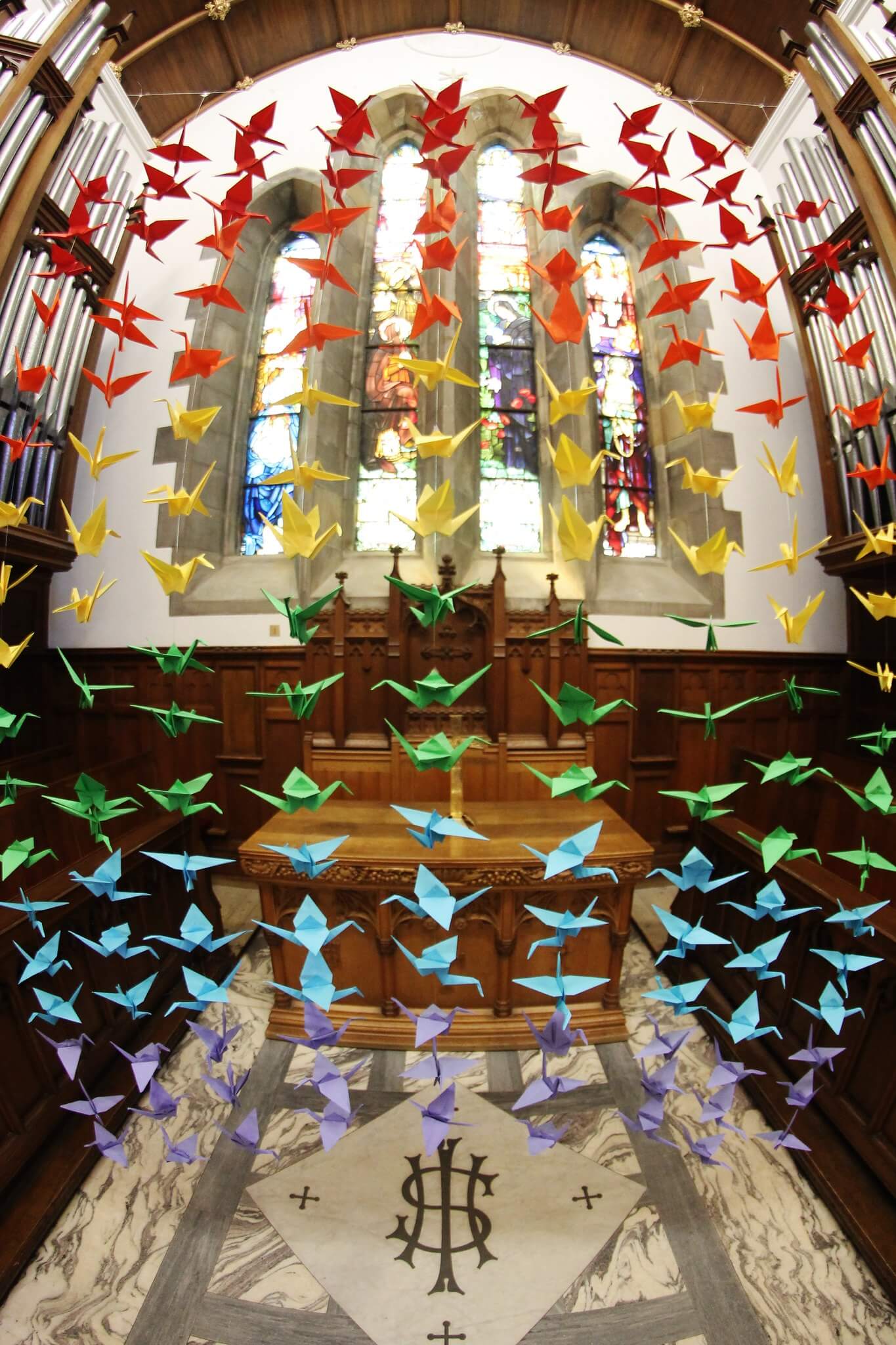A sermon preached by Jo Connolly on Feb 2, 2020
Last week Keith and the Fallen Angles led us through reflections on darkness and light and during this fragile and frightening time we hold both in our hearts and in our lives. As we heard last week, in her poem “Blessed Are You” Jan Richardson said “Blessed are you; who bear the light; in unbearable times, who testify to its endurance amid the unendurable, who bear witness to its persistence when everything seems in shadow and grief.” These words rung true for me and helped me focus my words for today. Today we celebrate “the presentation.” I will try to look at “presentation” from a couple of angles, and ask your indulgence as I present some thoughts for your reflection.
We will start with the Gospel reading for today, Mary and Joseph, a poor family travelling to Jerusalem bringing two turtledoves and presenting Jesus as their “first born male” to God. The Presentation…
Simeon took Jesus in his arms and said “now you may dismiss your servant in peace, for my eyes have seen your salvation” and then Anna, the devout 84 year old widow who after seeing Jesus, also gave thanks to God and spoke about the child to “all who were looking forward to the redemption of Jerusalem.” These incidents must have been amazing piled up as they were on top of seeing the angels, the shepherds and the wise men after his birth.
Any of you who have had children know that travelling with a small child is difficult at the best of times and being poor and travelling with a child is doubly hard. They must have been filled with both joy and pride at the encounters in Jerusalem, and yet the shadow of what was to come was also revealed “and a sword shall pierce your heart” Simeon tells Mary. Happiness and sadness, shadow and light were both part of the presentation.
Who or what do we present nowadays? We still present our newborns with celebration—and we also celebrate weddings, graduations, and honour our loved ones at funerals and memorials.
But mostly we present ourselves. We are probably most ourselves when with our families and close friends but in public, and especially in our workplaces we often present ourselves differently. We are a society where we as individuals are constantly on display. The mushrooming social media world of Facebook, twitter, Instagram, and on and on are places of constant “presenting” ourselves. This nonstop comparing of ourselves with others—am I good enough, beautiful enough, smart enough… Mary Oliver said it well in her poem “Was I right, was I wrong, will I be forgiven, can I do better?” And finding ourselves lacking of course “Will I ever be able to sing, even the sparrows can do it and I am, well, hopeless.” Richard Wagamese also poignantly presented his sense of being a “cracked mirror.” In his poem, he says, “The crack tells me that there is something wrong with me, that I’m not enough and that this is how others see me, too.”
An age of constant anxiety and terribly high suicide rates especially among our youth and most especially among our indigenous youth. TV and movies splash unrealistic images of wealth and beauty that few if any can attain. And what are we presenting? Often flashy, showy images of shallow displays of wealth and airbrushed beauty. We worry and worry and see how we fall short in every direction. Not only do we not measure up against the celebrity images all around us, but there is always someone in our workplaces and even around us in public, who look like they have it all together when we don’t.
I could vent and rant here about the evils of technology and how we somehow need to push Pandora’s box closed, or push the genie back into his lamp, but it’s too late for that. So how do we look at presenting ourselves in a different way? Without disconnecting ourselves completely from society; how do we ground ourselves in values that are different from the commercialism and capitalism that crowd into our eyes, and ears and minds every day?
There are hints in the readings today. It may be a stretch to point this out, but Mary and Joseph listened and pondered when people made fantastical and surprising pronouncements. They lived their lives simply and were open to the truths that they heard along the way.
Richard Wagamese says he is learning to “see beyond the crack.” He says he is “learning to love my imperfections; in the end, they make me who I am, in all my flawed glory.” Wise, wise words in an age that diabolically tries to only see “the cracks” of our failings and imperfections.
Mary Oliver ends up “giving up on worry” and says: “Finally I saw that worrying had come to nothing. And gave it up. And took my old body and went out into the morning and sang.”
Can we do this? Can we try to see ourselves in “all our flawed glory?” Can we somehow say “no” to the forces that make us feel less than we are and communicate these truths to our friends and family? And how do we reach out to those around us, especially the youth in our midst with this counter-cultural stance?
We at Holy Trinity are not perfect, but I am proud and honoured to have been part of a community in all our “flawed glory!” We are a passionate, committed, quirky bunch of people who try to live out a sense of how to live lives of justice. None of us are perfect but I have been proud to be with you all as we grope forward in our Strategic Planning for the future. Today, after the service we will have a forum and learn a bit more, but for now, I am proud that we stand with the marginalized who have certainly been deemed “not worthy” by our culture, and continue to try to find an “alternate way” going out into the morning and singing with the sparrows and looking beyond the cracks in ourselves and each other.
You might be thinking, how does all this “love yourself” stuff help our world? I would answer this question with another question—How can we love others or our world if we don’t even love or value ourselves? If we are mired in anxiety and self-doubt or even self-loathing there is no base for reaching out to the world.
And our world is in dire straits. The Atomic Scientists Bulletin moved the doomsday clock closer than ever to 100 seconds before midnight. The threat of nuclear war and a ceaseless climate emergency is daunting. More than a billion animals and their habitats were destroyed by Climate Emergency fires in Australia. In the face of this, what can we do that would make more than a symbolic difference? I would propose that there are three radical individual actions we could choose that will help—choose to not drive, to not travel by plane and to eat a plant based diet. Each of these things are hard – for some harder than others, and it may be that the first step is to try to consciously choose the alternative sometimes and make the larger carbon footprint choice less and less often. These courageous lifestyle choices will be easier when you become grounded in integrity and compassion towards all, including yourself. These hard choices don’t in any way shift dramatic societal changes off the shoulders of our world leaders, but it is to take personal responsibility for trying to live differently.
My favourite quote from Mahatma Gandhi is: “Recall the face of the poorest and most helpless person you have seen and ask yourself if the next step you contemplate is going to be of any use to that person.” I have often thought of some of the most marginalized people I have ever seen—the man on the subway the other day who smelled so badly people were running out of the subway car covering their mouths and gagging, the woman in a Massachusetts prison with AIDS during the first months of the crisis, ill and scared and isolated from the other women, the homeless young man who opened up to me about the repeated abuse he suffered at the hands of several of his mother’s boyfriends. What good is the buying of that new sweater just because I feel a bit down and looking for some retail therapy? Will it help any of these sad and struggling people? Do I really need to zip over to the large grocery store in my car when I can walk with a bundle buggy just a block away? When choosing what to cook, even if not ready to be a complete vegan, could I try a couple of meals a week where I don’t put meat as the centerpiece? Each of us need to look at our own lives and see what small or large steps we can take—I am not here to tell anyone what they should or could choose. But, we each must choose.
And what about all the times we fail to love? The times we look in the mirror and feel discouraged by the very normal signs of aging we see. The times we snap at one of our loved ones because we are feeling tired. The times that even separating our garbage to ensure the right items go into the recycling bin feels like a burden and a tiresome chore. I try so hard to be patient with my kids, and then I fail and snap “hurry up” when I know Tobias is trying his best to get the words out.
For just one moment today, can we be hopeful and close our eyes and say: “All shall be well, and all manner of thing shall be well” as Julian of Norwich famously stated? Can we dare to believe this in an age of a homelessness emergency, unaffordable housing, nutty world leaders, increasing tensions around the globe, and dire climate crisis? How do we live lives of integrity, justice, compassion and hope when everything seems so fragmented?
I will posit we do this by living lives of justice, compassion and hope in community with those around us, small steps of choosing justice every day. Love yourself and others as best as you can, forgiving yourself when it’s hard to do. As Martin Luther King Jr. stated so beautifully, “Darkness cannot drive out darkness, only light can do that. Hate cannot drive out hate, only love can do that.” The more we pull these words into our very bones the more we can truly believe that no matter what happens, “all shall be well, and all manner of thing shall be well.” Pray this be so.
I will close with a poem by Beth Morey from Night Cycles: Poetry for a Dark Night of the Soul:
“do you dare to step in—
to the vulnerable black, stripped
to the soul with human blindness—
when the full and weeping
moon steps from the shade
of a tumult of mountains—
when, in the fragrant dim,
day’s tree stump transforms
into some nether-worldly other—
when time’s skin is thin and you are
bared—when there is nothing
between you and the Wildest One
whose name is your own?”

